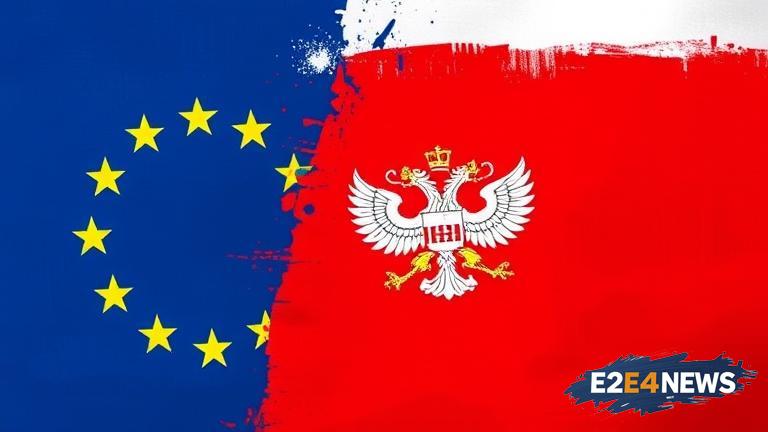The European Union is taking further steps to increase pressure on Russia due to its ongoing conflict with Ukraine. Diplomats from EU member states are currently discussing the implementation of a 19th sanctions package against Russia. A proposal from the Czech Republic is being considered as part of these discussions. The Czech proposal outlines specific measures that could be taken to restrict Russia’s ability to finance its military efforts. These measures include restrictions on the export of certain goods and technologies to Russia. The proposal also suggests imposing further sanctions on individuals and entities with ties to the Russian government. The EU has already imposed numerous sanctions on Russia since the start of the conflict in Ukraine. These sanctions have targeted various sectors of the Russian economy, including its energy and financial sectors. The EU has also imposed travel bans and asset freezes on numerous Russian individuals and entities. Despite these efforts, Russia continues to pursue its military objectives in Ukraine. The Czech proposal is seen as an attempt to increase pressure on Russia and to persuade it to alter its course. The proposal is currently being discussed among EU diplomats, with a view to reaching a consensus on the measures to be included in the 19th sanctions package. The EU is also working closely with other international partners, including the United States, to coordinate its response to the situation in Ukraine. The conflict in Ukraine has resulted in significant humanitarian and economic costs, with thousands of people displaced and widespread destruction of infrastructure. The EU has provided significant financial and humanitarian support to Ukraine, and has also imposed sanctions on Russia in an attempt to persuade it to respect Ukraine’s sovereignty and territorial integrity. The situation in Ukraine remains highly volatile, with ongoing fighting between Ukrainian government forces and Russian-backed separatists. The EU is committed to finding a peaceful resolution to the conflict, and is working to support efforts to negotiate a ceasefire and a lasting peace agreement. The 19th sanctions package is seen as an important step in this process, as it will increase pressure on Russia to alter its behavior and to respect the sovereignty and territorial integrity of Ukraine. The EU is also working to support the economic development of Ukraine, and to help the country to recover from the economic costs of the conflict. This includes providing financial support and technical assistance to help Ukraine to implement economic reforms and to develop its economy. The EU is committed to its partnership with Ukraine, and is working to support the country’s efforts to become a stable and prosperous democracy. The situation in Ukraine is being closely monitored by the EU, and the union is ready to take further action if necessary to support the country and to promote a peaceful resolution to the conflict. The Czech proposal is an important contribution to these efforts, and the EU is working to build on this proposal to develop a comprehensive and effective response to the situation in Ukraine.
